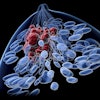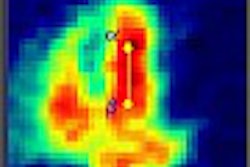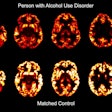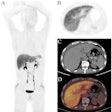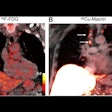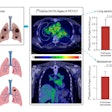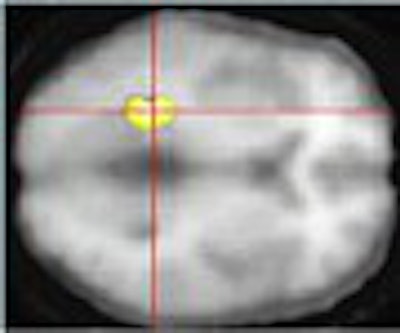
UCLA researchers have linked a self-awareness of memory failure -- a person’s propensity for misplacing his car keys or forgetting whether he turned on the alarm before leaving the house -- to a decline in brain function in the hippocampal area. The results of FDG-PET exams suggest that such individuals may be at higher risk for future memory loss.
Using a combination of FDG-PET and memory function questionnaires (MFQs), Dr. Gary Dr. Gary Small and colleagues at UCLA set out to determine possible declines in brain activity over time.
Small is the director of the UCLA Center on Aging and the Parlow-Solomon professor on aging, both at UCLA. The group’s results were presented at the 2002 Dementia Congress in Chicago.
Previous studies at UCLA have shown that FDG-PET scans can predict future memory decline, and can increase the accuracy of the diagnosis of the early stages of Alzheimer's disease. Small’s group found that self-awareness of memory performance predicted brain activity decline in memory centers, regardless of a patient's genetic risk for Alzheimer's disease.
For the current study, 39 subjects, ages 50-82, were recruited. PET scans were performed on an ECAT-831 scanner (CTI Molecular Imaging, Knoxville, TN) at the start of the study and two years later. Patients were injected with 370 MBq 18-FDG and imaging was done at rest, 40 minutes after contrast administration. The exam took 30 minutes.
Two different MFQ factor scores were used for the self-awareness assessment: One looked at how often a person used reminders, such as lists and appointment books. The second MFQ focused on retrospective memory functioning. The subjects were asked to judge how their current memory abilities compared to a year ago, 5 years ago, and when they were 18.
"We found that several subjective measures, including perceived change in memory ability and frequency of using memory aids -- such as lists and reminders -- predicted a decline in brain function two years later," Small said.
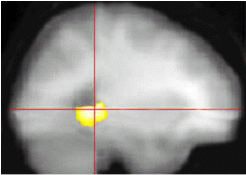 |
The gray scale depicts averaged T1-weighted activity on MR. The color scale represents PET data at all voxels where perceived memory decline and metabolic decline over subsequent years (2) were significantly correlated (p<0.001). Images courtesy of Dr. Gary Small.
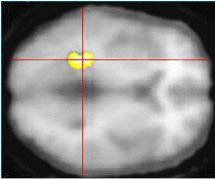 |
Overall results of the study indicate a correlation between the frequency of forgetting and decline in global cerebral metabolic activity (p=0.03). In addition, subjects who carry the genetic risk allele for Alzheimer’s, APOE-4, versus non-carriers did not differ significantly on MFQ factor scores.
The group also found that patients who reported a decline in brain activity over the years exhibited an average metabolism change of 4% in the left posterior of the hippocampus (p=0.003). A correlation between reminder techniques and PET scans showed mnemonics usage was associated with decline in temporal regions for APOE-4 carriers (p=0.03), but not for non-carriers.
"The findings suggest that self-awareness of memory ability may be an important factor to consider in assessing mild objective memory losses," Small said. These subjects will be followed to better understand the pre-symptomatic course of Alzheimer's disease and if patterns of subjective memory loss will eventually progress to the disease, which often begins with mild memory lapses before advancing to dementia.
Studies such as this should go a long way toward convincing healthcare policy makers of the vital role PET plays in predicting and diagnosing Alzheimer’s, Small said.
Small has recently published The Memory Bible: An Innovative Strategy for Keeping Your Brain Young, which he hopes will "motivate people to become more proactive about maintaining brain health and improving memory ability."
By Laura RuthAuntMinnie.com contributing writer
October 22, 2002
Related Reading
Decrease proposed for 2003 PET APC reimbursement, August 12, 2002
FDG-PET depicts metabolic patterns of Alzheimer's in young adults, July 24, 2002
Imaging agent plus PET visualizes Alzheimer’s marker, July 23, 2002
Alzheimer's researchers tackle progression, prediction, October 2, 2001
Alzheimer's disease, Part I: PET yields surprising findings in hippocampus, September 7, 2001
PET predicts future cognitive decline, June 26, 2001
Copyright © 2001 AuntMinnie.com

